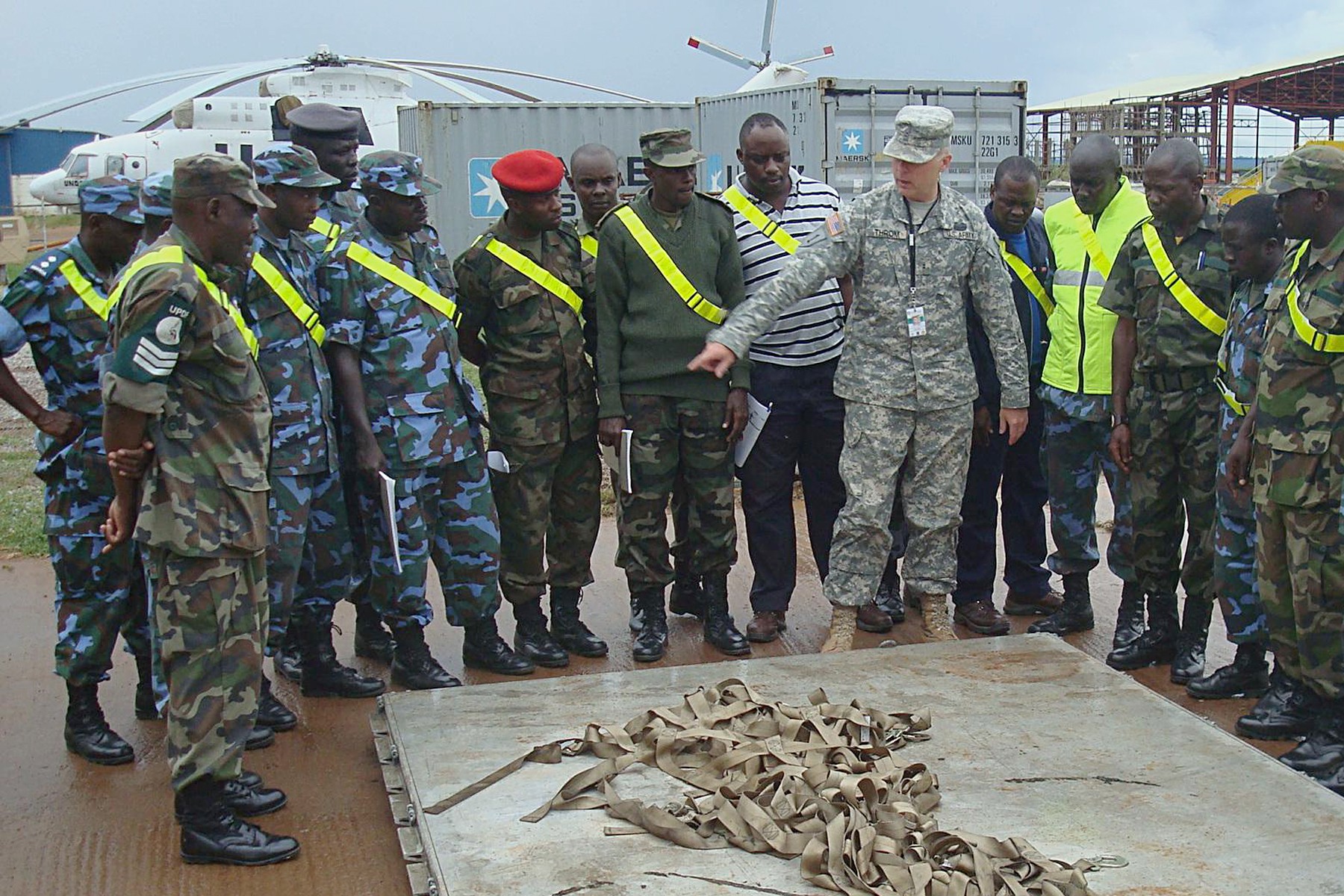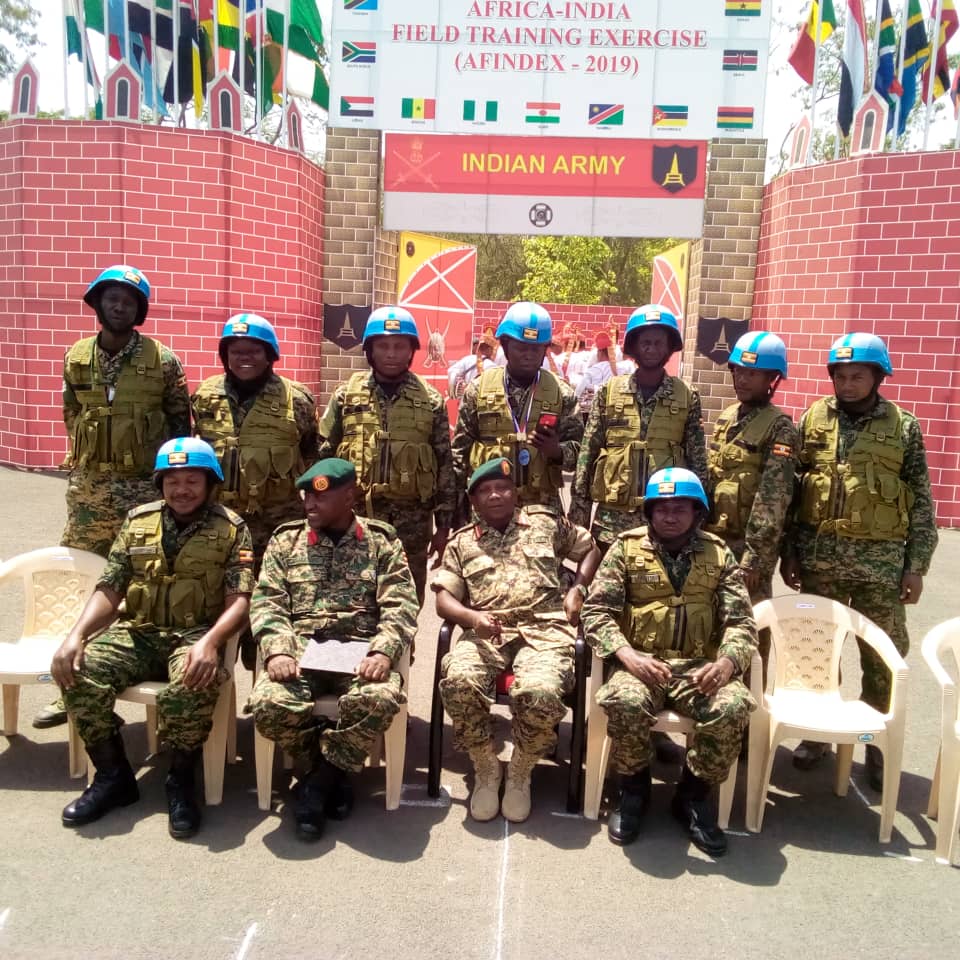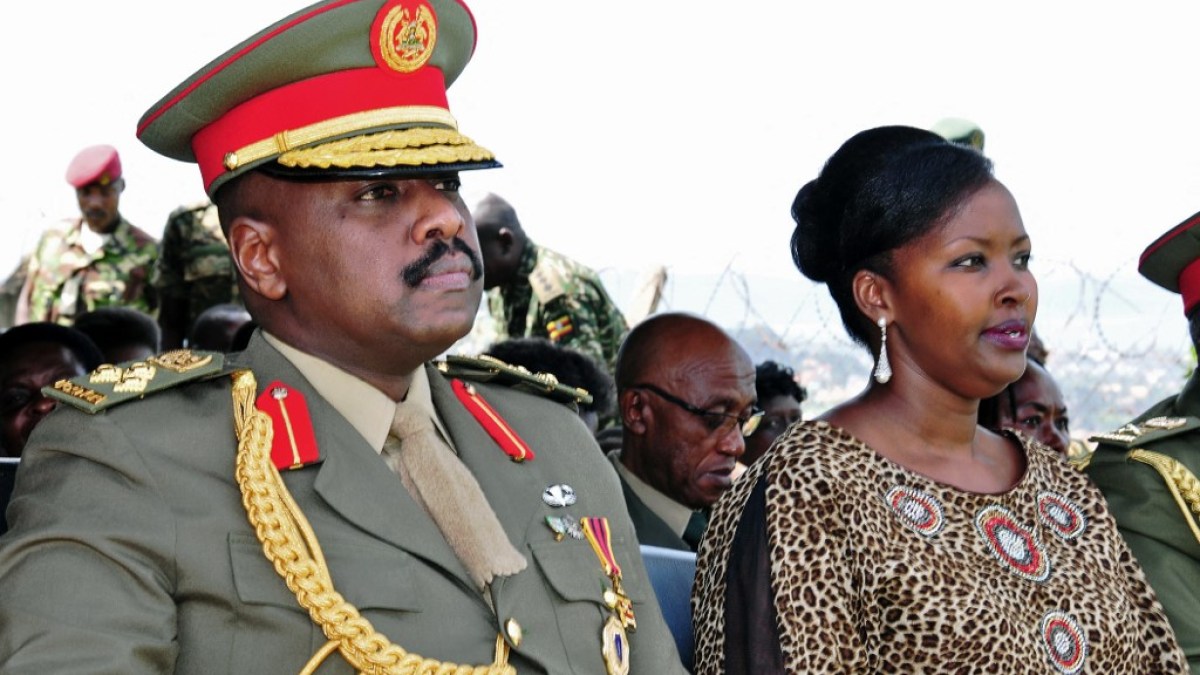Uganda Military - A Ugandan national deployed to the Democratic Republic of Congo (DRC) "accidentally" shot dead two soldiers in a friendly incident in the eastern city of Beni, a military spokesman said on Tuesday.
Spokesperson for the Congo-Uganda joint operations, Lt. Col. Mac Hake, told reporters that the shooting took place on a highway linking Beni to the northeastern town of Kasindi in the eastern Rwanzori region of the DRC.
Uganda Military
The Ugandan private "inadvertently shot two of his friends" on Tuesday morning, Hazuki said, without giving further details about the incident. It happened.
Uganda Army (1962–1971)
Initially limited to DRC in eastern North Kivu province, the Ugandan military operation expanded to the border region of Ituri at the end of January.
Congolese and Ugandan forces are trying to secure the Beni-Kasindi highway, where a Ugandan company is carrying out construction work under an agreement between the two neighbours.
According to the Islamic State group, which is part of Central Africa, the ADF has been accused of killing thousands of Congolese residents and carrying out terror attacks in neighboring Uganda.
Killings by ADF continue despite joint operations between Ugandan and Congolese forces. The militia is one of more than 120 armed groups active in the conflict in eastern DRC.
Uganda To Send 1,000 Troops To Regional Force Against M23 In Drc
We use cookies or similar technologies on our website to analyze our transactions. By closing or discarding this notice, clicking a link, button, or continuing to browse this website, you accept the use of cookies or other information. MalieUganda People's Defense Forces are seen on the Mbau-Kamango road in Beni District, Democratic Republic of Congo on December 8, 2021. Sébastien Kitsa Musayi/AFP via Getty Images
On May 26, at a polling station in Omoro District, northern Uganda, a large crowd gathered near ballot boxes under a tree near a small dirt road. Old men in camouflage, young men in soccer jerseys and babies on their backs came from houses hidden in the long grass to watch the population of delegates voting for a parliamentary by-election.
Beside them were several members of the security forces: two regular guards in khaki uniforms; an anti-terrorist officer in a beret and shades; A soldier in dark trousers; A riot policeman in a navy blue uniform looks like a soldier, not a soldier; and four men in balaclavas in the back of a pickup truck. Most of them were carrying guns.

This scene from an anonymous polling station reveals some simple truths about how the Ugandan state operates under former rebel President Yoweri Museveni. Museveni is consolidating his political power with all kinds of security forces, including intelligence agencies and police units, but the military mentality reigns supreme. Under Museveni's leadership, the military is making inroads into Ugandan politics and society.
Uganda Chief Of Defence Forces Meets Us Army Africa Commander
The presence of the army everywhere shows the weakness of the state. The modern Ugandan state was created by British colonialists who did little to build a bureaucracy. In the 1970s, Ugandan leader Idi Amin controlled the organizations on the ground. Faced with a legacy of weak governance, Museveni has repeatedly turned to the military, the only institution he truly trusts. Unlike the police or civil servants he inherited from the previous administration, the army is a direct descendant of the rebels he built from scratch.
Moses Kisa, a Ugandan political scientist at North Carolina State University, said, "Museveni has always been a military man and believes that having a gun is the best way to organize, to control people, to control society. "But I think recently, militarization has become more dangerous and Most common is because Museveni is a leader weakened by so many forces against him."
Those forces include the geographic forces of demographics. According to the Uganda Bureau of Statistics, three-quarters of Ugandans are under the age of 30, and there aren't enough good jobs to go around. Frustration over corruption and inequality has given voice to opposition politics with the support of singer-turned-politician Bobi Wine and retired soldier Kizza Besigye. "[Museveni's] main focus is building the machinery, the military apparatus, to maintain and expand his power," said Besigye, who fought with Museveni in the bush but has since fought against him in four presidential elections.
"Museveni has always been a soldier and believes that the best way to organize, to control people, to control society is to have a gun."
Ugandan Soldiers Of The Uganda People's Defence Force (updf) Patrol Through The Central African Jungle During An Operation To Hunt Notorious Lord's Resistance Army (lra) Leader Joseph Kony. The Lra Is A
The election is a clear example of the many roles of the country's military. In Omoro, according to Human Rights Watch, soldiers attacked local opposition offices the night before the by-election, assaulted activists, stole money, and forcibly confiscated documents. Plainclothes police and snipers detained protesters, including a member of parliament, on election day. Other recent minor elections have been marred by credible allegations of arrests, bribery and vote rigging. Such brazen actions are reminiscent of the brutality of the sabotage, arrests, kidnapping, torture and killing of government opponents during the 2021 presidential election.
But the text of the army is much broader than that. Think about the police. In the early years of his administration, Museveni openly questioned the loyalty of the police: he once complained that they were voting for cattle instead of him. His solution was to place the army under the leadership of generals such as Gen. Although Kale Kayihura, who served as a police chief from 2005 to 2018, is a civilian, Martin Okoth Ochola, who is now the head of the group, is more. Analysts believe that real power lies with a group of soldiers in high positions.
Military conscription "reduces the work of the police ... because these people are not trained in the security service," said Julius Odwe, who was Kayihura's deputy police officer until Odwe retired in 2011. Many of Odway's old friends are tired. , he added, because there are fewer and fewer high-ranking civilian police officers. "I think that's how the police are dying because of the lack of professionalism," he said.

And it is not only the police that are filled with military personnel. Museveni has appointed three former army chiefs to ministerial posts, while six other former army chiefs are either serving or retired. All interior ministers are generals and the department's top government staff. Traffic control has been handled by the army since 2019.
Top Commander In Kony's Rebel Army Captured By Ugandan Troops, Official Says
The military extends beyond the security sector and into public service organizations, said Sylvie Namwase, a researcher at the Center for Human Rights and Peace at Makerere University in Kampala, Uganda. The military has entered many of these fields over the past decade, replacing or replacing the work of civil society organizations and civil servants.
For example, the president's "anti-corruption unit" is headed by a soldier. The military strictly enforces fishing laws on Lake Victoria. The army patrols tax collection points, fights locusts, runs factories, feeds cattle, chases down street vendors, and trains everyone from sportsmen to water engineers. Many areas of the economy, from seed distribution to mineral development, are now driven by Operation Wealth Creation, a general military program.
As the military expands, so does its budget. Uganda's defense spending has tripled over the past four years to $1.2 billion (Uganda 4.7 trillion shillings) for the 2020-2021 fiscal year. In addition, Uganda's parliament often passes supplementary budgets - a type of emergency spending - to allocate special funds to the military.
Military officials have justified their excesses by lamenting government failures and arguing that the military supports economic development. "If these government organizations followed their procedures, followed the law, operated as expected, we have no business going into it," said Brig. General Military Spokesman Felix Kulaigue was formerly his Chief Political Commissar. He compared what he called the "stitches" of civil servants and police to the sacrifices he said soldiers make for their country. “We paid a price today to see Uganda. However, our fellow citizens - we let the country run - do their own thing. Shall we fold our hands and give up?”
Gun Attack On Ugandan Ex Army Chief Kills Daughter, Driver Military
But the military also has a long history of corruption, from scandalous sales to the heisting of gold, diamonds and timber in the Democratic Republic of Congo. Bypassing special structures, Museveni himself creates the conditions for their collapse. "He's a micromanager, he can't build institutions," said Mugisha Muntu, who led the army in the 1990s and ran as a candidate for a small protest group last year.
Museveni also relies on the military to exert power over his family. Commander-in-Chief Lt. General Museveni's son and military commander Muhuzi Kainerugaba is trying to replace him. And the general. The president's brother Salim Saleh runs Operation Wealth Creation, giving the first family direct control over a large support force.
However, the military-state is not an all-encompassing monolith. One, the opposition is too weak to be completely silenced. It has a vibrant print

Absa uganda, uganda military strength, visum uganda, uganda, uganda domain, pvoc uganda, uganda missionary, uganda trekking, uganda trips, uganda charity, military in uganda, uganda visa
0 Comments